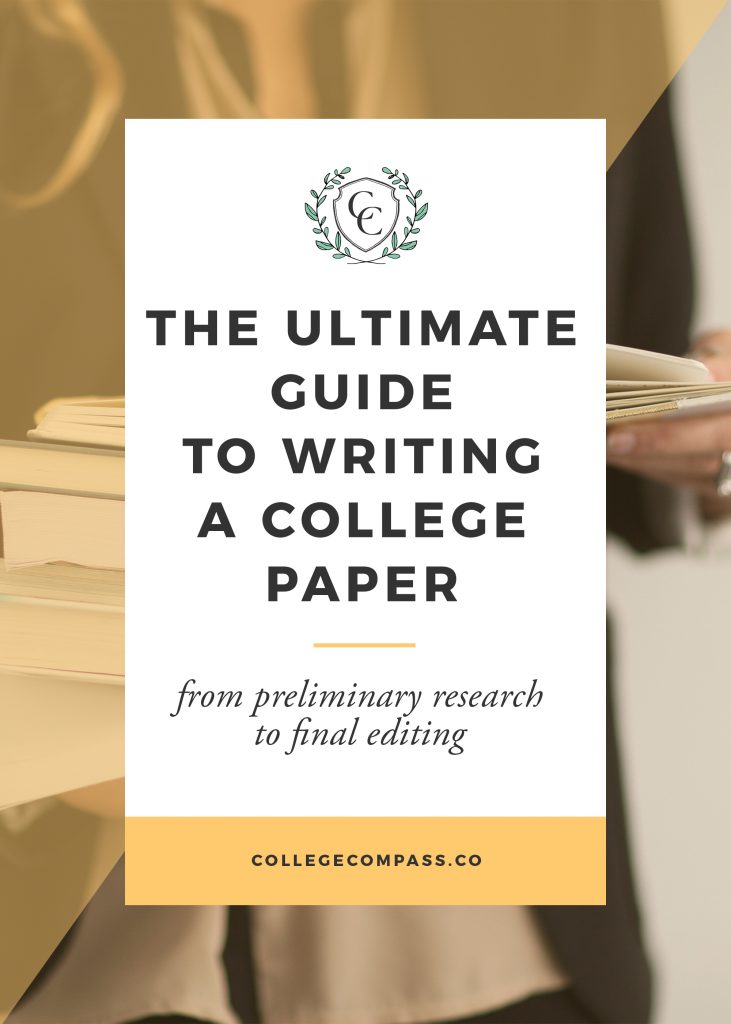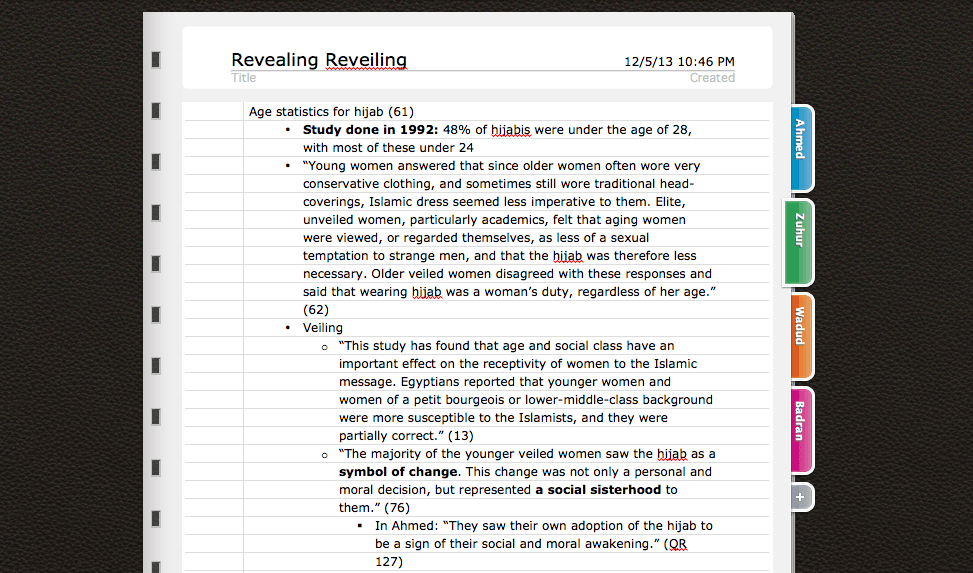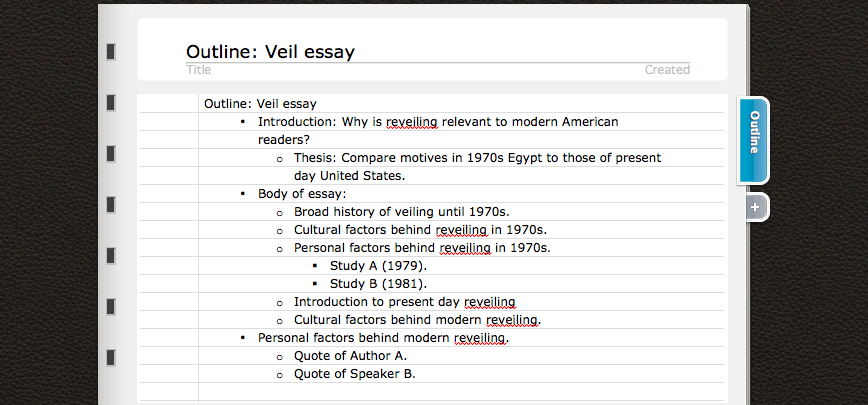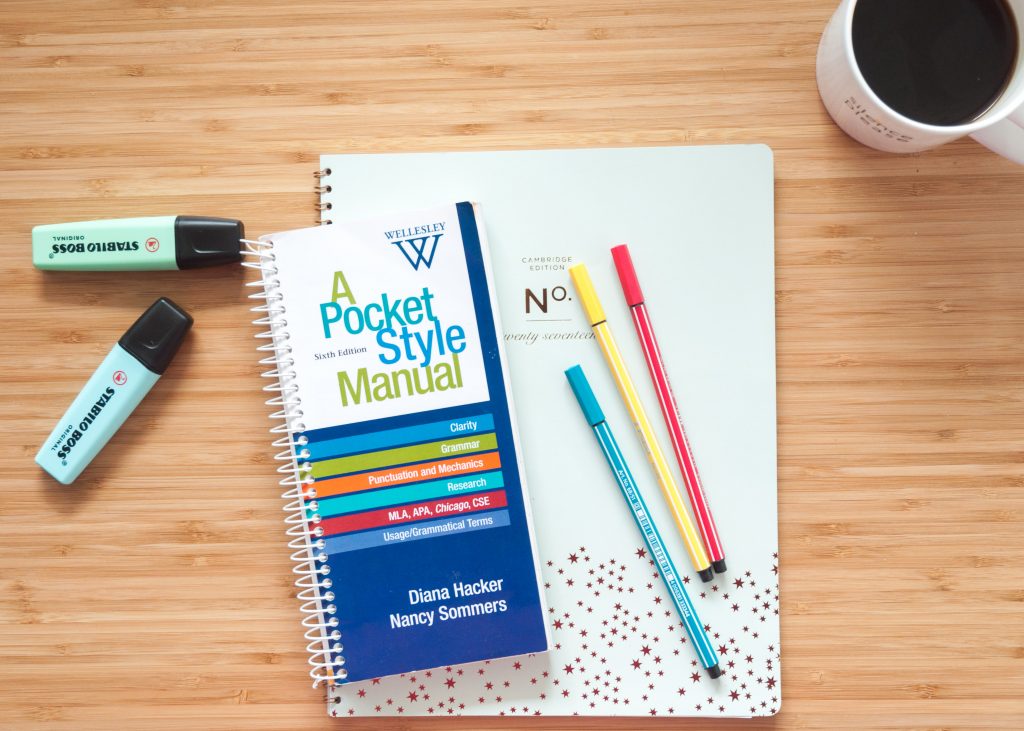Call me a nerd, but I love to write college essays. Checking out books, making outlines, and (best of all!) turning in the finished project just makes me happy. Over the years, I’ve worked out a system and a schedule for writing all my essays – and now that I’m at Oxford and writing two essays a week, I need it more than ever! For those of you who are new to college writing or just can’t get the hang of it, I’m sharing my advice— here’s how to write a college paper, from start to finish.
1. Picking your question
Some of you may have a mandatory question assigned, and in that case, you can skip to the next section. If, however, you have a list of questions, or need to think of a question yourself, this is the place to start.
If given a list of questions, don’t just choose the one that seems easiest. Often, questions can be deceiving; the ones that seem easy can turn out to be much trickier or more nuanced than you expected. Choose the essay question that legitimately seems the most interesting to you, regardless of how difficult it is. It’s better to be energized by a challenge than to trudge through a question you find boring. Even if it is difficult, the professor will know that you took a risk and challenged yourself.
Coming up with your own question can be difficult. Take a look at the required reading for the course and the subjects raised in class lectures, and come up with a question for yourself that you find interesting, to which you don’t already know the answer. If you need help choosing an research paper question, check out our foolproof five-step method to choosing a research paper topic!
2. Making a schedule
I prefer to start my essays early, to minimize stress as much as possible. My formula at my home college is to take the number of pages in the essay and add three days to that total. For example, I would spend eleven days on an eight-page paper, and eight days on a five-page paper. I use the first two days to do just research, and after that write one page a day, with one day at the end for editing.
Unfortunately, a schedule like this is often a luxury, and for some classes (or universities!) it’s just not possible. Here at Oxford, I have so many essays to write that I usually only get to spend three to five days per essay. In that case, I still recommend one day for just research and then to divide the length of the essay over the days you have left.
3. Finding your sources
Finding sources can be both fun and a challenge. We’ll use an example from my actual life: an eight to twelve page paper for my Contemporary Islam class. The topic I chose was one that legitimately interested me, but which we barely covered in class: the history of headcovering. I started by going to the few pages in one of our class books that discussed veiling, and then looked at the end notes for a list of sources used. That gave me a list of about eight reputable sources.
Next, I met with the professor in office hours to talk about relevant sources in case there was anything I missed. As someone who didn’t have experience writing in this area, I wanted to make sure that there were no major scholars on the topic that I was leaving out. Make sure that if your professor lists an author or book, you get your hands on that source, whether it’s at your library or via inter-library loan. It could make a big difference in your final thoughts on the topic, and your professor may be surprised if you leave the source out of your essay.
4. Reading and note-taking
Next, sit down for several hours and dedicate yourself to understanding your sources. If you only have four or five (or fewer!) sources, read them all. If you’re like me and end up surrounded by 20 books, a great way to save time and make sure that all your sources are relevant is to look up academic book reviews for your sources on JSTOR. The reviews will often give you a contents of the book and provide you with a summary how it was received — i.e., whether you should take it seriously.
I prefer to take typed notes when I have the time, because they are cleaner and more organized than my handwritten ones. However, if you prefer to take notes by hand, that is fine and totally up to you.
If I am writing my notes on a computer, I use a Notebook Word document that allows me to put a different author in every tab. An alternative to this would be Google Drive or Evernote, depending on what you have access to. After this step, I write out a list of quotes and summaries as I read.
After reading each source, I like to make a little one-paragraph summary of what its central thesis was. That way, after reading however many sources you have, you can still keep them apart.
5. Drafting an outline
There are many ways to draft an outline. I like to use two different kinds, depending on what kind of essay I’m writing.
a. // The first kind of outline is best for when you are discussing a topic and presenting a conclusion, rather than answering a question. Think of the essay like a discussion you are manipulating. You are going to present the topic, control which points are talked about, and respond to any questions or concerns that the other person may have before they can present them.
The body of your essay will be sandwiched between an introduction and a conclusion section (each of which is allowed to be longer than a paragraph if you like – this isn’t high school!). At the top of your outline, write, “Introduction – introduce topic.” For your introduction, as yourself, “Why is this relevant to my reader?” It will help make your essay more interesting and engaging to read.
Next, plan your thesis statement – the one-sentence summary of either what belief you’re going to defend, or what topic you’re going to explore further. Make sure you’re specific in what you’re going to talk about, but don’t summarize the whole essay before you begin. Here is an example thesis statement:
this paper seeks to examine the female-led motivations behind reveiling in Egypt, and determine whether they are echoed by rising feminist interpretations of the hijab in the post-9/11 United States.
Now plan out the body of your essay. Divide your argument up into points that build on one another. Start with the broadest first, then move to increasingly specific. Here is an example:
Now finish up with your conclusion. For the outline, you can just write “Conclusion – closing thoughts.” You’ll have a better idea of just what those closing thoughts are once you’ve written the essay.
b. // The second way to structure your outline is best for answering direct question prompts. For this, you can divide your main question up into several smaller questions. For example, I recently wrote an essay on Michal, the first wife of King David in the Bible. As my essay topic was a question (essay titles are often questions at Oxford), in order to structure my outline, I divided it into step-by-step questions that would lead to a conclusion. My essay question was, “To what extent is Michal the victim of her own story?” To answer that question, I divided up my essay like this:
- Introduction: What is the story of Michal?
- How autonomous is she?
- How does she suffer?
- Why does she suffer?
- Conclusion
Structuring your essay like this, even when you don’t mention the explicit questions in your essay, makes it easier to write, as each of your essay sections will be focused on discussing something directly relevant to your thesis statement.
6. Writing the essay
Now comes the hard part: writing the essay. If you made a good outline, this part will be a lot easier.
a. Reflecting on previous feedback
If you’ve previously written an essay for this professor, take a look at the feedback on your old assignments to see how to improve. Did you use too many quotes? Were you too wordy? Do your best to take that advice to heart in this essay. If this is your first time writing for the professor, just do your best and see some of my general advice below.
b. Which citation style to use
Always make sure to cite correctly – plagiarism, whether intentional or not, is a very serious offense, and could get you expelled.
Different disciplines require different citation styles. As a religion major, I most often use Chicago and MLA style. For a list of which disciplines require which citation styles, look here. If you’re still unsure, ask your professor!
c. General tips
There are plenty of things I could say here, but I’m going to stick to three pieces of advice. The first is to really engage with the subject of your essay. Really ask yourself the question that you’re trying to answer in your writing, and then do your best to make your essay’s answer as thorough and clear a possible.
Second, try to stay clear in your writing. Don’t get too creative with a thesaurus; clean, elegant writing is always the best way to go. Some great books on this are the Chicago Manual of Style and The Elements of Style by Strunk and White.
Third, try not to over-quote (my biggest writing sin!). Using too many quotes is the sign of an insecure writer. A tip for this is not to have any books or articles open next to you as you write; just go off of your notes and your memory. When you do use a quote, try to go for primary sources, and use a sentence before and after the quote to set it up and explain its relevance.
7. Editing the essay
You finished your essay! Put it aside for a night if you can before taking a look. This will let you return to it with a fresh eye and a clear mind.
When editing, I find it most helpful to print it out and go through with a pen, crossing things out and marking them as I go. Look for any errors in grammar or citation, and try to make your writing as clear as possible. If necessary, ask a friend or tutor to look over it for you to see if they catch anything you didn’t.
If you struggle with grammar and citation, I really recommend you get a citation guide. Personally, I love the Pocket Style Manual, which was a required purchase at my college and which has saved my butt on more assignments than I can count. It includes sections on each of the major required styles in which to format your papers. Mine lasted me through all my years in college, and I can’t recommend it highly enough. There are school-specific versions and a general version, but the differences are pretty small. I recommend the general version of your school doesn’t have its own.
Finally, know when to put it down. If you’ve been editing your essay for hours and you’re about to throw it out and start over, stop. Have some confidence in yourself and your abilities. You didn’t come to college to be the perfect student – you came to learn. Your essay is probably much better than you think it is.
What’s your best tip for writing a college paper? Let me know in the comments!

This post was originally published SaraLaughed.com. It has been modified and improved for use at College Compass with permission of the author.






I never even heard of notebook word ! I been going through your site all day! Your tips are fantastic! I can’t wait to start improving my work in college!
Thanks so much for commenting, Arianna! I’m SO glad that you’re enjoying the site and that it’s motivating you!
Thank you so much! Your tips are so great and usefull!
Thank you Sophie! I’m really glad they helped you!
THANK YOU SO MUCH! This article was so helpful! I have an essay due in 12 hours and this article has been a life saver!
Eek! Thanks so much, Sydney, I’m glad it was helpful. Lots of luck on your paper!
I am an older student and it has been years since I have written papers. Your tips are amazing and very helpful. Wish I would have run across this site a while ago. I have a feeling my professors will be shocked when i turn these papers in. THANK YOU!!!!!
Thank you so much for commenting, Monique! I’m so glad that these resources are helping you; truly, my ultimate goal is to help other students succeed, and it’s always so rewarding to hear that I’m doing that. Come back and let me know how it goes when you turn in your paper! I’m sure you’ll do great!
My niece is about to start college. I’m in college & use Google Docs for my notes & Study Guides. Is there a reason you prefer Notebook Word?
Love your site! I’ve learned a great deal.
Thank you Deana! I actually no longer use Notebook Word – I now use Google Docs, too, for easy syncing. I’ll be updating this post soon!
Sarah,
Thank you very much for this thoughtful guidelines. I will surely share with others mostly this fall.
This really helps. thank you so much Sara
Thanks so much for the great post! I’m an English major and I feel like there is so much here that I didn’t know (which is a little disheartening). But you do a great job organizing and explaining and I’m kind of psyched to rock my next paper.
This is a dumb question, but what’s the point of a college essay? What I’ve read seemed to imply that this is how it works: You read a handful of sources based on what your prof thinks, then take chunks from those sources and string them together, rewording them to avoid plagiarism. That seems kinda pointless. I’m not going to be able to actually provide some new insight since my knowledge of the subject is mostly limited to what my prof wants me to believe. That may be sufficient, but I was always uncomfortable writing because I didn’t feel that I was actually in a position to honestly evaluate different claims and theories made by the authors, people much more informed than me.